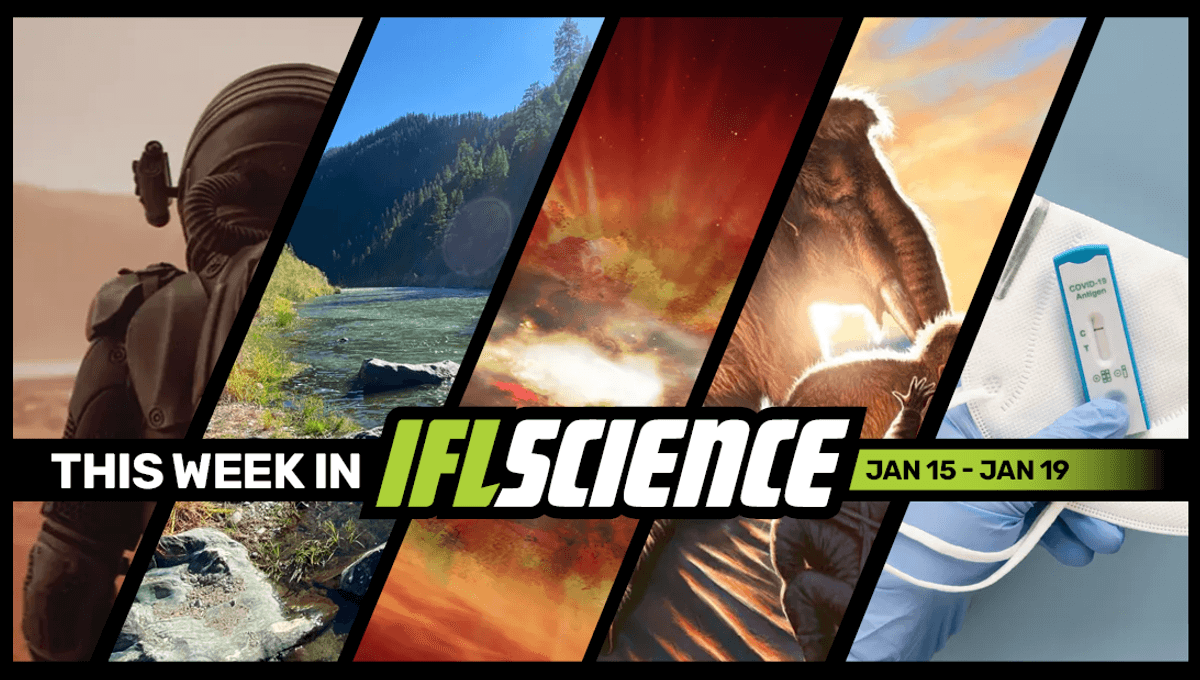
This week, water flows freely down the Klamath River for the first time in 100 years, the oldest known supermassive black hole was found at the center of GN-z11, and a 14,000-year-old woolly mammoth tusk tells the tale of the animal’s huge journey. Finally, we ask what will be happening on the surface of the Moon in 2075.
Subscribe to the IFLScience newsletter for all the biggest science news delivered straight to your inbox every Wednesday and Saturday.
Astronauts Heading To Mars Will Experience The Effects Of Time Dilation
When astronauts head to Mars, they will experience time dilation. That’s to be expected. In fact, your feet and your head experience time dilation, with your head aging ever so slightly faster than your feet. But how much time dilation will they experience (relative to Earth observers)? Read the full story here
Water Is Freely Flowing Down The Klamath River For First Time In 100 Years
The Klamath River, which trails for 414 kilometers (257 miles) between Oregon and northwestern California, was once the third-largest salmon-producing river on the West Coast. Now, following years of activism from Indigenous communities and environmentalists, the removal of dams along the Klamath River is allowing water to flow freely once again, marking a new hope for the region’s iconic salmon. Read the full story here
Oldest Black Hole Found Gobbling Gas Just 400 Million Years After The Big Bang
Astronomers have estimated the size and activity of a supermassive black hole discovered in one of the most distant galaxies we have ever seen. Because the speed of light is finite, looking farther into the universe is like looking farther back in time. The light from this galaxy comes from just 400 million years after the Big Bang, making this the oldest known supermassive black hole found yet. Read the full story here
Tusk Tells The Tale Of Huge Journey Made By A Woolly Mammoth 14,000 Years Ago
Using little more than a tusk, scientists have pieced together the lifetime travels of a single woolly mammoth that wandered North America more than 14,000 years ago. Starting life in the western Yukon, the mammoth traveled hundreds of kilometers through northwestern Canada before arriving at her final resting place, an early human settlement in present-day Alaska. Read the full story here
How Worried Should We Be About The New COVID-19 Variant JN.1?
It’s almost four years since COVID-19 was officially declared a pandemic. Although the state of emergency has now passed, and vaccines and treatment advances have helped turn the tide, the virus is very much still out there. The latest variant, JN.1, has brought with it some unexpected new symptoms – but how worried should we be? Read the full story here
TWIS is published weekly on our Linkedin page, join us there for even more content.
Feature of the week:
It’s The Year 2075. This Is What It Looks Like On The Moon Now
The year is 2075. The place: the Neil Armstrong International Lunar Base in Henson Crater. Two astronauts sit side by side inside a pressurized, six-wheeled, lunar transporter. They have just exited the station’s car airlock and are rolling down the Moon highway. The Earth’s natural satellite is no longer just a desolate celestial sphere. Read the full story here
More content:
Have you seen our free e-magazine, CURIOUS? Issue 18, January 2023, is out now. Check it out for exclusive interviews, book excerpts, long reads, and more.
PLUS, the entire season 3 of IFLScience’s The Big Questions Podcast is available now.
Source Link: Mars Astronauts Will Experience Time Dilation, How Worried We Should Be About The New COVID-19 Variant, And Much More This Week